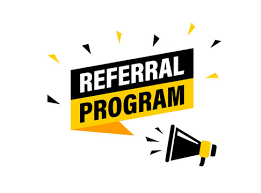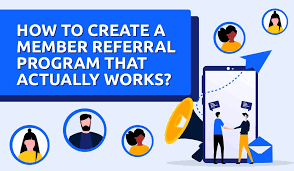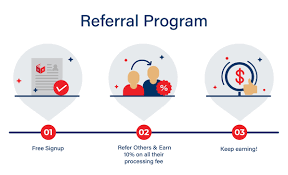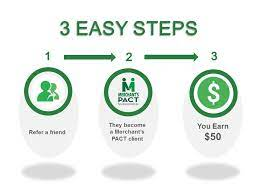
Welcome to our comprehensive guide on referral program examples, where we’ll explore the best referral programs, strategies, and practices to help you succeed in building and growing your own referral program here.
A well-executed referral program can help you generate more leads, increase customer loyalty, and boost your revenue. In this guide, we’ll walk you through some of the best referral program examples and provide actionable tips to create your successful referral program.
Section 1: What is a Referral Program?
A referral program is a marketing strategy that incentivizes existing customers to refer their friends, family, or colleagues to your business. By offering rewards or incentives to customers who refer new customers to your business, you can encourage them to spread the word and generate more leads for your business.
Referral programs can be a powerful tool for businesses of all sizes and can help you grow your customer base and increase your revenue.

Section 2: Why Are Referral Programs Important?
Referral programs are essential for several reasons. First, they can help you generate more leads for your business. Referral marketing is a highly effective way to reach new customers because people are likelier to trust recommendations from people they know than advertising. Second, referral programs can help you increase customer loyalty.
You can show appreciation and build stronger customer relationships by rewarding customers who refer new business. Finally, successful referral campaign programs can help you boost your revenue.
Because a referral marketing program is so effective, the customers you acquire through referrals will likely have a higher lifetime value than those acquired through other channels.
Section 3: Referral Program Examples
Many customer referral programs are used, each with its own set of benefits and challenges. Here are some of the most effective referral program examples:
The Double-Sided Referral Program:
The referrer and the new customer recently received a Referral reward in this referral program. This can be a powerful motivator for customers to refer their friends and family to your business.

The Points-Based Referral Program:
In this referral program, customers earn points for each new customer they refer to your business. These points can be redeemed for rewards, such as discounts, free products, or gift cards.
The Tiered Referral Program:
This is a unique referral link and reward program where customers receive different rewards based on the number of new customers they refer. For example, customers who refer one new customer may receive a small compensation, while customers who refer five new customers may receive a larger prize.
The Influencer Referral Program:
In this type of referral program, you partner with influencers in your industry and offer them incentives to promote your business to their followers.

Section 4: How to Create a Successful Referral Program
Creating a successful referral program requires careful planning and execution. Here are some tips to help you get started:
Define Your Goals:
Before you create your referral program, defining your goals is essential. What do you want to achieve with your personal referral link and program? Are you looking to generate more leads, increase customer loyalty, or boost your revenue?
Choose the Right Incentives:
The incentives you offer for referrals can make or break your referral program. Ensure you choose valuable incentives for your customers and motivate them to refer their friends and family.
Make It Easy to Refer:
To keep customer acquisition costs, encourage more referrals, and make it possible for your customers to refer their friends and family. Please provide them with clear instructions and easy-to-use referral tools.

Promote Your Referral Program:
To maximize the impact of your referral program, you need to promote it effectively. Use social media, email marketing, and other channels to spread the word about your company’s referral program.
Measure Your Results: To understand how well your referral program
Merits of an Effective Referral Program
A well-designed referral program can have a host of benefits for your business beyond just increased sales. Here are some of the key advantages:
Increased Customer Acquisition
When your customers refer their friends and family to your business, you can tap into a new network of potential customers. In addition, referrals are often more effective than other forms of marketing, as people are more likely to trust recommendations from people they know and trust.

Higher Customer Lifetime Value
Customers who come to your business through a referral program will likely stick around and become repeat customers. They are also more likely to refer others to your business, creating a virtuous customer retention, referral campaign, and acquisition cycle.
Cost-Effective Marketing
Referral programs can be a cost-effective way to acquire new customers. While some upfront costs are involved in setting up referral links and promoting the referral program participants, the rewards you offer your customers are only paid out when a referral leads to a sale.
Improved Customer Loyalty
By offering referral incentives, you show your loyal customers that you value their loyalty and appreciate their support. This can help to strengthen your relationship with your customers and improve their overall satisfaction with your business.
Enhanced Brand Awareness
Referral programs can also help to increase your brand awareness and visibility. When your customers refer others to your business, they are essentially vouching for your brand and endorsing your products or services.
In conclusion, a well-designed referral program can be a powerful tool for growing your business and increasing revenue.
By following the steps outlined in this guide and creating a program that aligns referral marketing efforts with your business goals and customer needs, you can make your referral program work well, help you outrank your competitors, and generate more sales.
Don’t hesitate to contact us if you have any questions or want to learn more about creating a successful referral program for your business. Thank you for reading!
Additional Tips for Creating a Successful Referral Program
Here are some additional tips to keep in mind when creating a referral program for your business:
Make it Personalized
Personalization is critical in creating a referral program that resonates with your customers. Consider segmenting your referral program rewards by customer type, purchase history, or other relevant factors to create a more tailored experience.
Offer Multiple Rewards
Offering multiple rewards for different levels of customer referrals can be a great way to encourage happy customers to refer more people. For example, you could provide a small tip for the first Referral, a larger prize for the second Referral, and so on.

Leverage Social Media
Social media can be a powerful tool for promoting your referral program and reaching new customers. Consider creating social media posts, running ads, and partnering with influencers to spread the word about your referral program page.
Provide Timely Rewards
Ensure you promptly provide your customer’s rewards to keep them engaged and motivated. Delayed rewards can lead to frustration and disinterest, which can undermine the success of your program.
Keep it Simple
Simplicity is vital in creating a referral program that is easy to understand and participate in. Keep the process simple and straightforward to avoid confusing or frustrating your customers.
Final Thoughts
Creating a successful referral software program takes time, effort, and strategic thinking. However, following the steps and tips outlined in this guide, you can create a program that helps you outrank your competitors and grow your business.
Don’t be afraid to experiment and adjust to optimize your referral program software and achieve the best possible results. Good luck!

Well-designed customer referral program is a crucial aspect
We firmly believe that a well-designed customer referral program is crucial to any successful business. Not only does it help generate new leads and drive sales, but it also fosters loyalty and strengthens existing customer relationships.
In this article, we will outline the critical components of an effective referral program and provide tips for creating one that will help your business thrive.
Critical Components of an Effective Referral Program
You must include several key components to create a referral program into an effective referral program. These components include:
Clear Incentives: Your customers need to know what they will receive in exchange for referring new business to you. Providing clear and compelling incentives to motivate them to refer their friends and family is essential.
Simple Process: The referral process should be straightforward to follow. Your customers should be able to refer a friend of their contacts with minimal effort and without encountering obstacles or complications.
Consistent Communication: Keep your customers informed and engaged throughout the referral process. Send regular updates and reminders about the status of their referrals, and be responsive to any questions or concerns they may have.
Tracking and Reporting: To measure the success of your referral program, you need to track and report on the results. This will help you identify areas for improvement and refine your referral program ideas over time.

Tips for Creating a Successful Referral Program
Now that you understand the critical components of a successful referral program, here are some tips to help you create a successful referrals program that will help your business thrive:
Offer a Compelling Incentive: The reward for referring new business to you should be something that your current customers genuinely value. Consider offering discounts, free products, or other exclusive perks to your referral campaigns to motivate them to act.
Make it Easy to Refer: Use technology to simplify the referral process. This can include creating a custom referral code or link name, offering pre-written social media posts, or providing an easy-to-use online form.
Personalize Your Outreach: Personalize your communications when contacting customers about your referral program.
For example, use their name, mention their previous purchases or interactions with your business, and highlight the referral program example that benefits that are most relevant to them.

Promote Your Program: Don’t be afraid to promote your referral program across your marketing channels. This can include social media, email marketing, and even print materials. The more you encourage your schedule, the more likely it is that your customers will take action.
Set Achievable Goals: When designing your referral program, set achievable goals that align with your business objectives. For example, you may want to develop a plan for a certain number of new referrals per month to increase sales.
Thank Your Customers: Show your appreciation for your customers’ efforts by thanking them for their referrals. This can be a personalized message, a small gift, or a discount on their next purchase.
Continuously Optimize: Analyze the data and feedback from your referral program to identify areas for improvement. Then, continuously optimize your schedule to make it more effective and appealing to your customers.

Leverage Social Media: Utilize social media to promote your referral program and make it easy for customers to share it with their networks. Share links to your referral program on your social media accounts and encourage your customers to do the same.
Offer Tiered Rewards: Consider offering tiered cash rewards for referrals referred to customers. For example, customers could receive a smaller prize for their first Referral and a more significant premium for their second or third Referral. This can incentivize customers to refer more business to you.
Personalize the Experience: Personalize the referral experience by tailoring the messaging and incentives to each referred customer. For example, consider offering different rewards for different types of referrals (e.g., a more significant premium for referring a high-value customer).

Make Referral Easy: Make the referral process easy for your customers. Please provide them with clear instructions on referring friends and family to your business, and offer multiple channels for them to submit, referrals (e.g., email, social media, and website).
Create a Sense of Urgency: Encourage your customers to refer their friends and family by creating a sense of urgency. For example, you could offer a limited-time discount or bonus for referrals submitted within a specific timeframe.
Use Targeted Marketing: Use targeted marketing to promote your referral program to customers most likely to refer new businesses to you. Segment your customer base based on demographics, behavior, and other factors, and tailor your referral program messaging and incentives accordingly.

In conclusion, a well-designed referral program can be a powerful tool for growing your business and fostering customer loyalty. Following the critical components outlined in this article and implementing our tips can create an effective, efficient, and profitable referral program. Remember to track and measure your results, and be open to making adjustments and improvements as needed. With the right strategy and execution, a referral program can help take your business to the next level.

CoopBusiness is a revolutionary cooperative business-building platform that empowers individuals to become entrepreneurs, business owners, and financially independent.
As a member, you’ll receive top-level business mentorship, access to our proprietary business systems, and the opportunity to access the funds you want to turn your business ideas into reality.
